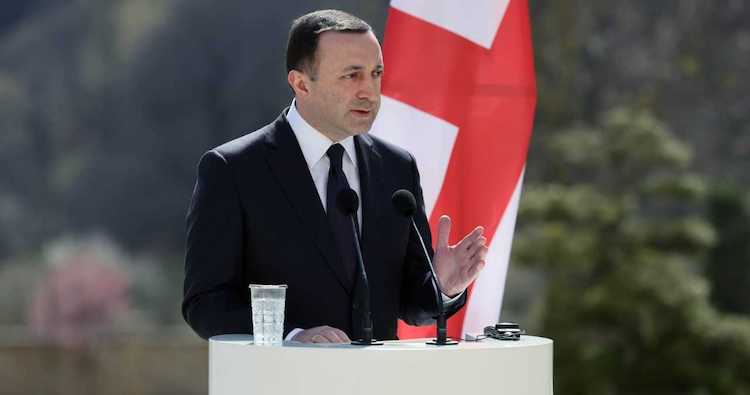Georgia-China trade turnover up 400% following trade deal - PM

“China can easily become Georgia’s number one trading partner if we continue to export more quality products to China and vice versa", said PM Garibashvili. Photo: PM's press office
Georgian Prime Minister Irakli Garibashvili said in an interview with China Central Televsion the trade turnover between Georgia and China had grown by 400 percent following the signing of the free trade agreement between the two countries in 2018, adding China had “very rapidly” become the third-largest trading partner of Georgia.
China can easily become Georgia’s number one trading partner if we continue to export more quality products to China and vice versa. There is a big potential, and I believe in this potential, and that is why I am so passionate about the potential that comes from the free trade agreement”, he said.
Garibashvili noted it was him who had started negotiations in 2015 for signing the free trade agreement with China.
This was the first free trade agreement in Eurasia. We were privileged and lucky enough to have this kind of agreement. The result is very tangible”, he said, adding his Government “fully supported” increasing economic relations with China.
Garibashvili said he encouraged more Georgian companies to export goods to China, naming wine as an example.
Georgia is indeed the birthplace of wine. We are proud of it, and therefore we need to promote Georgian wine in China. We are considering opening tourism centres in different cities of China and promoting Georgian wine - and simply Georgia - because the country can be more interesting for Chinese tourists”, the official told the interview.
He also added “we want to see more Chinese citizens visiting us, more tourist agencies to open their offices and promote Georgia, and vice versa”.
Garibashvili said Georgian companies could also export “quality agricultural goods”, gold and copper to China, highlighting “diverse opportunities” for bilateral trade between the countries.
 Tweet
Tweet  Share
Share